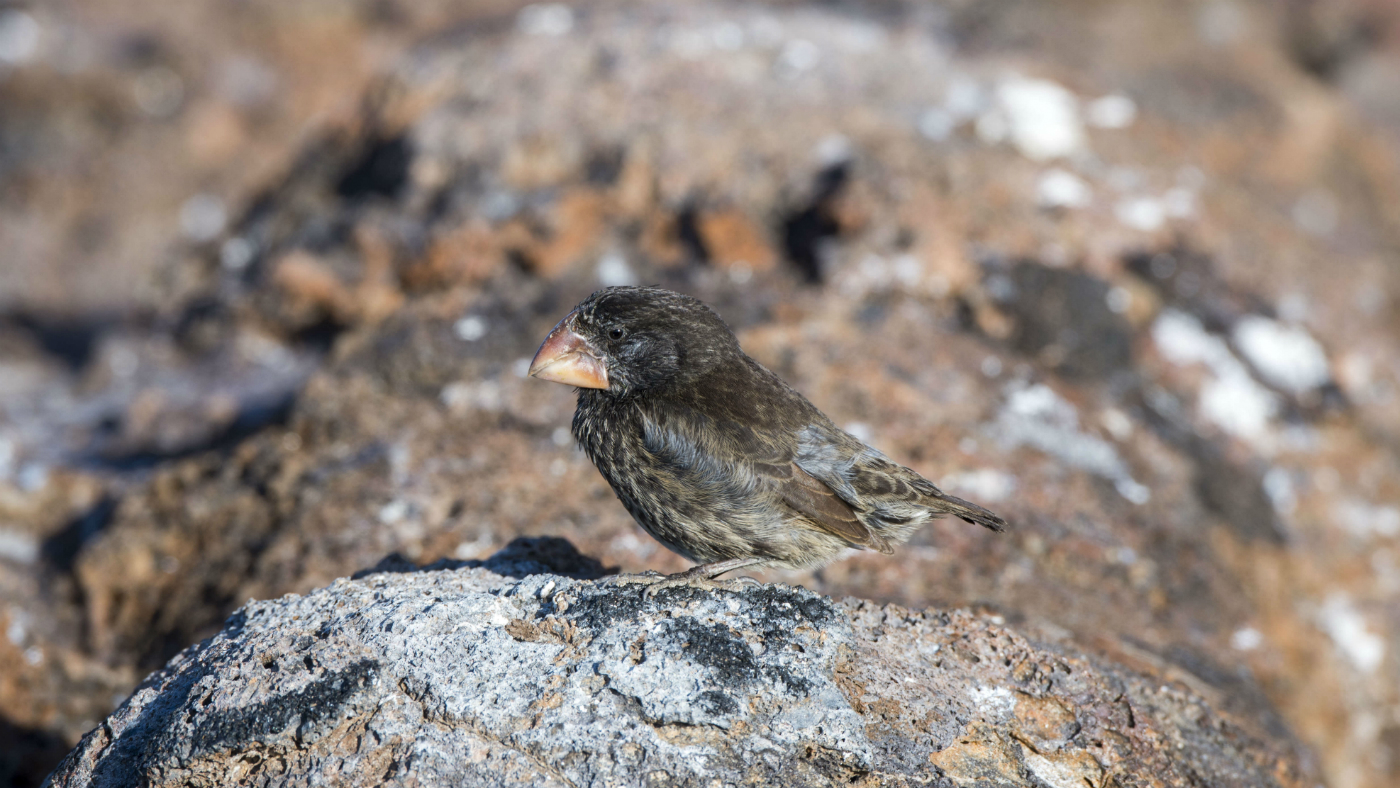Darwin’s finches evolve before scientists’ eyes
In three generations, the Galapagos Island finches have shown evolutionary traits that usually take hundreds

A free daily email with the biggest news stories of the day – and the best features from TheWeek.com
You are now subscribed
Your newsletter sign-up was successful
A population of finches on the Galapagos Islands has been “caught in the act” of becoming a new species, according to the journal Science.
It reports that researchers saw the finches mixing with other birds to create a third species, in what is thought to be the first example of speciation observed directly in the field.
Finches on the Galapagos Islands consist of many species known collectively as Darwin's finches, which were first studied by Charles Darwin in the 1830s. The remoteness of the islands mean the animals that inhabit them have long provided insights into the mechanics of evolution.
The Week
Escape your echo chamber. Get the facts behind the news, plus analysis from multiple perspectives.

Sign up for The Week's Free Newsletters
From our morning news briefing to a weekly Good News Newsletter, get the best of The Week delivered directly to your inbox.
From our morning news briefing to a weekly Good News Newsletter, get the best of The Week delivered directly to your inbox.
In 1981, researchers recorded the arrival of a male large cactus finch, a species not native to the islands. He “proceeded to mate with a female of one of the local species, a medium ground finch, producing fertile young”, the BBC reports. Thirty-six years later, their offspring are still being observed, numbering around 30 individuals.
The study “shows that reproductive isolation, which typically develops over hundreds of generations, can be established in only three”, the report in Science says.
“It's an extreme case of something we're coming to realise more generally over the years,” says Prof Roger Butlin, a speciation expert. “Evolution in general can happen very quickly.”
A free daily email with the biggest news stories of the day – and the best features from TheWeek.com
-
 The Week Unwrapped: Do the Freemasons have too much sway in the police force?
The Week Unwrapped: Do the Freemasons have too much sway in the police force?Podcast Plus, what does the growing popularity of prediction markets mean for the future? And why are UK film and TV workers struggling?
-
 Properties of the week: pretty thatched cottages
Properties of the week: pretty thatched cottagesThe Week Recommends Featuring homes in West Sussex, Dorset and Suffolk
-
 The week’s best photos
The week’s best photosIn Pictures An explosive meal, a carnival of joy, and more